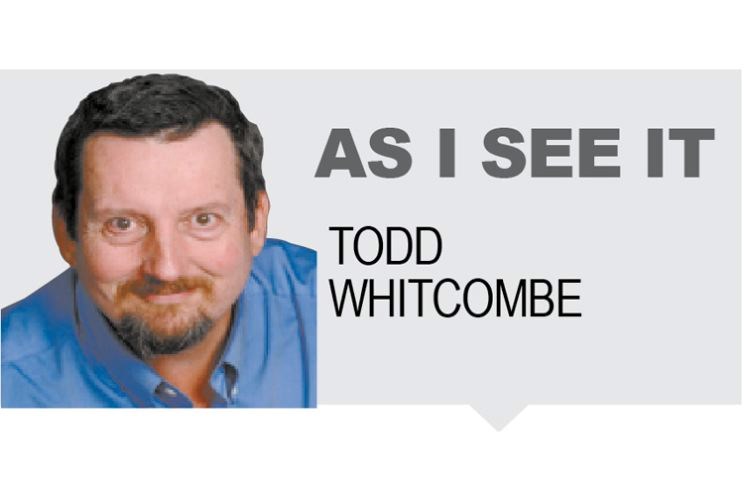When I started at UNBC in the mid-1990s, I had a conversation with one of my colleagues in psychology about the concept of other. What defines other? And how?
I repeated this conversation with colleagues in history, English and a few other disciplines. At the time, I was learning about a concept to which I hadn't given a lot of thought. It has stayed in my mind since those early days but rarely rises to the foreground.
Recently, biologists have begun to ask questions about other from a physical context. Roughly half the cells in a human's body are other species - bacteria, viruses, and such. It can be and has been argued we really are symbiotic creatures. The part we call me or I represents only about 50 per cent of ourselves.
Heady stuff. But it does bring to the fore the question of how do we define ourselves as people. This was reinforced for me recently as I was reading Behave by Robert Sapolsky. It is a book about the biology of our minds at its best and worst.
He has a whole chapter devoted to the concept of us and them. We call people of our tribe us. This can include family, relatives, friends, workmates, and even casual acquaintances. It can also include people of the same politic persuasion or moral values or religious beliefs. In the latter case, some pundits are prone to lopping all Christians in one category and all Muslims in another.
Indeed, the president of the United States seems to be of the belief all Muslims are the same, regardless. They are all them and not us. Similarly, many politicians south of the border speak of the United States as being all Christians - an us which is actually rife with multiple denominations who don't always see eye-to-eye.
Broad classifications of us-versus-them lead to divisive politics and strained relationships. Or as George W. Bush put it, "You are either with us or against us." Is there no middle ground? Can't someone support some of your views without having to support them all?
We - and I use here the broad descriptor to include all Canadians - tended to view this sort of politics of division as an American thing.
Something which dominated politics south of the border. But it no longer appears to be the case.
Today is Election Day in Alberta.
According to many observers and participants it has been one of the nastiest campaigns they have experienced. On the one side you have the United Conservative Party claiming all of Alberta's economic woes are the result of Rachel Notley and the NDP. After all, everyone knows NDP governments are irresponsible tax-and-spend hucksters. Except, of course, they are not.
The economic woes in Alberta started in the late 1980s with the Free Trade Agreement put together by Prime Minister Brian Mulroney and company. The deal hogtied Alberta. And to use an old saying "the pigeons have finally come home to roost." Alberta has to funnel oil through the United States whether they like it or not and U.S. sets the price.
More recently, the oil producing countries of the world chose to drive down oil prices in response to exploration and development of reserves. The world price is still in the mid-60s range which is nothing compared to prices 10 years ago. (And yet the price at the pump keeps going up...)
On the flip side of all this, the NDP keep pointing out the UCP are anti-immigration, racially insensitive, and generally out of touch with the values of modern voters.
They point out for the UCP there really is an us and them. More to the point, they would like voters to believe the UCP is very much about keeping Alberta just for us and not let any of them in.
This is an overstatement of positions. There are UCP candidates who should have been vetted better and not allowed to put their names forward but I don't think the party is inherently racist. On the other hand, Jason Kenney promising to shut off the oil if elected is not a good sign for Canadian harmony.
It paints the picture that we are not one country but 10 provinces, each with its own mandate and values. "Alberta is about business. B.C. is not," is certainly the impression the leader seems to be wanting to portray.
Of course, nothing could be further from the truth.
B.C. is open for business and doing very well by a number of economic measures even if a fair portion of that growth is from real estate development in the lower mainland.
Once the election results are known it will be incumbent upon John Horgan and the Premier-elect to reach out and find a way to bring us together.



